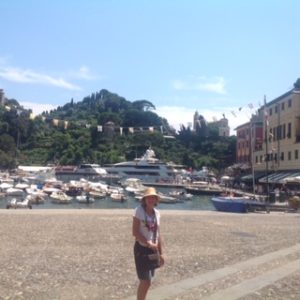Affording An Early Retirement
After the recent publishing of my ebook, Charting An Early Retirement, I have received a few inquiries from readers spanning several aspects of our retired life. The questions all had a similar theme; the readers want to know some of the nuts and bolts of how we actually afford our retirement. I thought in this post, I would provide a few more specifics about our lifestyle and how we are able to afford early retirement.
As I indicated in my book, the single most important factor to achieving early retirement is your savings rate. When it comes to your finances, this is really the only thing that you have total control over. Regardless of your investment returns, the higher your savings rate, the sooner you will retire. A close second factor to your savings rate, in terms of accumulating wealth, is at what age you start your savings plan. Obviously the earlier you start your savings in earnest, the better.
To be sure, my wife and I had a big advantage over most couples who dream of early retirement. That advantage is we did not have any children. Children are a real blessing, but they do cost money to get them to the point where they are on their own. Children are a real constraint on how much of your income you can save each year, but they do not have to mean that early retirement is not possible. My definition of early retirement is any age before 65.
However, regardless of how diligent you are in your savings plan, for people of average means, you will likely have to make some sacrifices in your lifestyle in order to retire before the age of 65. My wife and I were no different in this regard.
Here is a list of some of the sacrifices we made to afford early retirement.
- We sold one of our cars and became a one car family.
- No smartphones or data plans for us.
- We never shop at high end stores for clothes or anything else for that matter.
- We limit the number of times per month that we eat out at restaurants.
The biggest sacrifice we made was to sell our home in Annapolis, MD that we had spent a lot of time and money making it just the way we wanted. This was a very tough decision for us, but we decided that retiring early was more important to us than keeping our Annapolis home that we loved very much. However, there were some big financial benefits to this decision.
When we sold our home in 2012, we netted $550,000 from the sale. We used $225,000 to buy a 2-unit property in a smaller nearby town that we rented out to others that provided net income of $12,000 per year. The other $325,000 went into savings and investments. Based on the 4% rule (not familiar with the particulars of the 4% rule, better get my book), these investments provided another $13,000 in annual spending. So our financial picture changed dramatically with the sale of our house. We had owned our house in Annapolis without any mortgage, but the expenses to maintain this home was still about $12,000 to $14,000 per year when you include the property taxes, insurance, maintenance, and all utilities. By selling our home those expenses were eliminated, and the newly acquired rental property and other investments created $25,000 per year of funds. In total that is a $37,000 per year swing in funds available for spending.
You are probably wondering, “If you sold your home, where do you live?” If you have been following my blog posts, you know we have been living on our sailboat. When we are on land, we are visiting family and friends. But most of the year we are on our boat. Living on a sailboat is definitely an alternative lifestyle. Many people would not be able to live this way, but we like it.
To make a fair financial comparison, there are costs to living on a sailboat. We spend about $12,000 per year to own and operate our boat. So the financial benefit to selling our home is a net increase of about $25,000 per year in funds available for spending that we did not have before. These extra funds can be used to pay for basic retirement living expenses. We use most of these funds for traveling. In the last few years, we have taken 2 transatlantic cruises, 2 trips to Italy, one for 5 weeks and one for 10 weeks. Last summer we made an 8 week trip to Canada. This summer we will spend 7 weeks in Spain and Portugal.
So the freed up funds all get spent. It really is just a matter of how you want to spend them. When we lived in our home in Annapolis, we were spending all these funds on our home. Now we spend them on our sailboat and traveling. My wife and I have no regrets selling our house in Annapolis as we actually prefer the lifestyle we live now.

Satisfaction, where we live most of the year, moored in Fisher’s Bay, Great Guana Cay in the Bahamas
This year, our 7th year of retirement, I am now 62 years old. This year we decided to move into the smaller unit (a 1-bedroom apt.) of our 2-unit rental property for part of the year (we will still be living 7 months of the year on our boat). This change eliminates about $10,000 per year from our available annual spending funds, but the property still provides financial benefits. The other unit brings in $12,000 rent per year. This is enough revenue to pay for all the expenses of the property including the property manager, taxes, insurance, maintenance, and even the utility costs for the unit we occupy. We have no out-of-pocket expenses to live in this apartment. Additionally, the property is located downtown where we can walk to every town convenience making a second car unnecessary. To make up for the $10,000 per year in lost funds from occupying one unit, I am considering starting my social security benefits later this year.
For more details on what we did to get to this point, please pick up a copy of my ebook, Charting an Early Retirement, Simple Planning and Investing Strategies, available on this blog site.
Enough boring financial talk, below are some pictures of our current lifestyle.
Did you enjoy this post? Why not leave a comment below and continue the conversation, or subscribe to my feed and get articles like this delivered automatically to your feed reader.






Comments
No comments yet.
Sorry, the comment form is closed at this time.